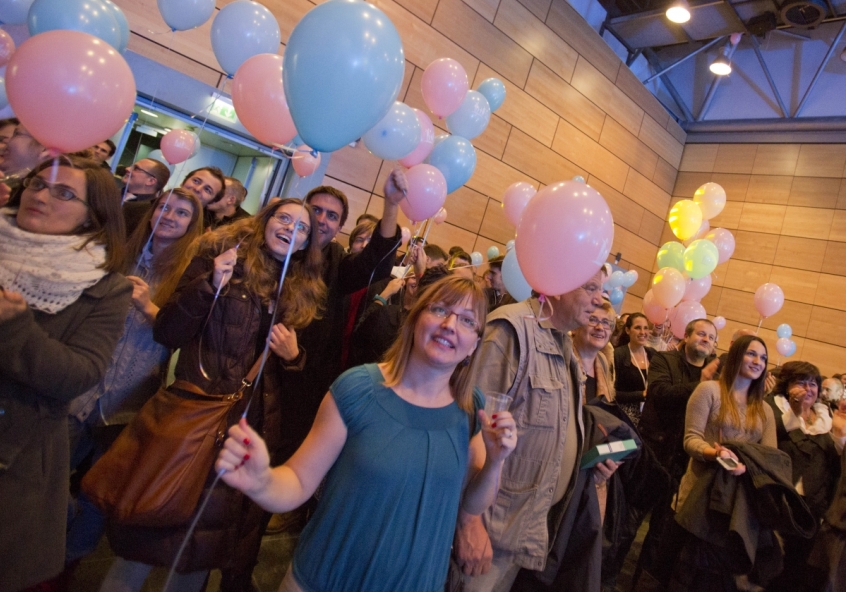
A majority of Croatians have backed a constitutional amendment to define marriage as exclusively a union between one man and one woman.
They showed their support in a referendum on Sunday which asked the question "Do you agree that marriage is the union between a man and a woman?". Just under two-thirds (65.8%) voted "yes".
The referendum was historic in its inception. The Croatian constitution requires a referendum if 10 per cent of the population sign a petition in support of a given measure.
The petition for this initiative, entitled "In the Name of the Family" received double the necessary support within two weeks, making the referendum a certainty, despite the objection of many political leaders.
Rules had been changed recently for the 2012 referendum on EU membership, so that a majority of all registered voters was no longer required for a referendum to be valid.
Before the referendum, Prime Minister Zoran Milanović had said "we trespass into unknown territory, because the constitution in Croatia has never been changed in this fashion". Since then, he has announced "This will be the last time that a majority takes away the rights of a minority".
Many have challenged Mr Milanović's characterisation of the situation, as well as the depictions of events in much of the western media. The European Dignity Watch, a Brussels-based rights group, lamented that the BBC, EU Business, Focus News Agency, and other media outlets described the referendum in their reports as 'banning' gay marriage.
They point out that "there is no right to gay marriage in Croatia" and that the referendum merely clarifies a specific question of whether marriage should be redefined as the union of any two adults, regardless of gender, or whether the historic definition of a lifelong union between a woman and a man should remain in place.
Other media outlets have claimed that the referendum was enforced by religious groups, with Germany's Berliner Zeitung claiming: "To prevent equal treatment of homosexual relationships, the powerful Catholic Church forced the referendum against the will of the left-wing government."
Reaction to the result by Croatian politicians has been to attempt to downplay the consequences of the vote for fear of offending wider EU sensibilities. Shortly after voting, Mr Milanovic said referendums shouldn't be used to decide on the "intimate issues within every family… this is a sad and senseless referendum and I hope this is the last time that we have a referendum on a question like this."
Ivo Josipovic, the Croatia President, shared the same view, saying "we did not need this referendum".
Many disagreed with this view, with Zeljka Markic, the leader of the "In the Name of the Family" initiative saying, "We believe that marriage, children and family are so important issues that the whole society has to decide on them."
Religious leaders also expressed support, with Croatia's Cardinal Josip Bozanic declaring in a letter read out in churches across the country, "Marriage is the only union enabling procreation. This is the key difference between a marriage ... and other unions."
Ballet dancer Sanja Grgic said: "I have nothing against gay people, I have many gay friends, but I voted in favour because I think children should grow up in a family that has a mother and a father."
Other commentaters have seen this issue as a wider comment on the current political situation in Croatia.
"This vote is not about marriage or the definition of marriage, this is a referendum against the current government," wrote Davor Butkovic, an influential columnist in the pro-government Jutarnji List shortly before the referendum.
Protests on the day of the vote were widespread, with many pro-gay activists marching through the Croatian capital, Zagreb, surrounded by tight security.
"We urge voters... to protect minority rights so that no one in Croatia becomes a second class citizen," gay rights activist Sanja Juras told the demonstrators.
"Homosexuality is not a choice but hatred is" and "let's protect all loves" were slogans found on some banners. When the protesters reached the Croatian Parliament building, a large rainbow flag was unfurled.
"I am here to vote against," said one demonstrator. "I call on everyone else to do the same. These matters have no place in the constitution because there should be possibilities for society to progress and not to get obstructed – particularly in times of economic crisis when we should be discussing labour rights."
But European Dignity Watch insisted it was not an issue of human rights: "The only thing that Croatians have called for through Sunday's referendum is for their country's constitution to recognise and protect a unique institution—a man and a woman joined together in a life-long union—and to treat it as such. This is the very definition of justice."
Exactly where the legislation or constitutional amendment goes from here is unclear. Prior to the result, some in the Croatian Parliament suggested that a positive vote would then require ratification by a two thirds Parliamentary majority. This has provoked a negative response from the "In the Name of the Family" campaign, who have pointed out that no such provision exists in the Croatian Constitution.
Parliament is now planning to debate a motion meaning referendums cannot be held on issues related to the constitution's chapter on fundamental rights. As this would be a constitutional amendment, this would require either a referendum or a two-thirds parliamentary majority.













